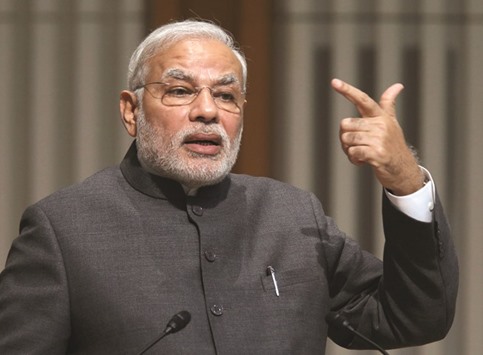Facing a daunting Rs8tn ($117bn) of stressed assets in its financial system, India is stepping up efforts to tackle an issue that is threatening to derail Prime Minister Narendra Modi’s development agenda.
In a boost to a Rs700bn recapitalisation programme already under way, the government allowed a single investor to fully own an asset reconstruction company, making it easier to raise capital. An earlier rule capped the ownership at 50%. ARCs buy bad loans and collateral from lenders, and work on recovery by revamping businesses and assets.
“The industry was constrained so far due to the 50% limit on sponsor’s shareholding,” said Siby Antony, chief executive officer at Mumbai-based Edelweiss Asset Reconstruction Co, the nation’s biggest. His firm will now seek more funds from its parent Edelweiss Financial Services, he said. The success of ARCs is crucial to reviving credit growth in the $2tn economy as lenders saddled with stressed assets at a 14-year high struggle to clean up their balance sheets. Modi needs the nation’s banks to get back on their feet at the earliest to help transform his vision of creating jobs through faster growth into reality. While presenting the federal budget for the year starting April 1, Modi’s Finance Minister Arun Jaitley eased the ownership rule for ARCs and also signalled he may raise the limit on foreign ownership from 74%. He also allocated Rs250bn for recapitalisation of state-owned lenders for the year starting April 1, same as the outlay in the current year.
ARCs are expecting record business after Reserve Bank of India governor Raghuram Rajan set lenders a March 2017 deadline to clean up their balance sheets. He allowed those completing a deal by March to spread losses from the distressed-asset sale over two years.
Stressed bank loans in India, including soured and restructured debt, are estimated at about Rs8tn, according to Junior Finance Minister Jayant Sinha. Edelweiss ARC, which has taken more than Rs550bn of soured debt, is the largest buyer in India. ARCs bought about Rs70bn of the Rs380bn of bad debt banks offered in the nine months through December, said Antony of Edelweiss.
KKR & Co, the buyout firm founded by George R. Roberts and Henry R Kravis, said that the government’s move will help lenders clean up their balance sheets.
“It’s a step in the right direction to capitalise the asset reconstruction companies,” Sanjay Nayar, chief executive officer for KKR’s India unit, said by phone. KKR will buy a stake in Mumbai-based International Asset Reconstruction Co, the Economic Times newspaper reported on January 6. State Bank of India, the country’s largest lender by assets, rose 2.1% to Rs162.05 in Mumbai. ICICI Bank surged 7.8%, the most in 10 months, and Bank of Baroda jumped 3.2%, the biggest gain in two weeks.
There are 15 ARCs after India passed the Securitization and Reconstruction of Financial Assets and Enforcement of Security Interest Act in 2002 to help reorganise non-performing credit. Loans in India grew 11.5% in the 12 months through February 5, less than the five-year average of 14.7%, central bank data show.
“Enabling sponsors to hold 100% of an ARC and allowing 100% foreign direct investment will open up avenues,” said VP Shetty, executive chairman of JM Financial Asset Reconstruction Co.

Modi: Wants the nation’s banks to get back on their feet.
